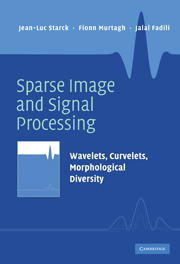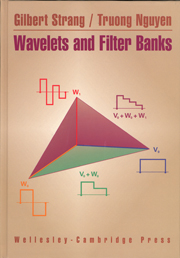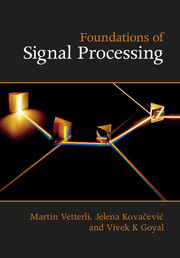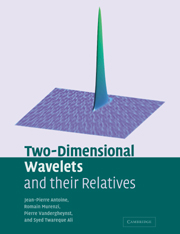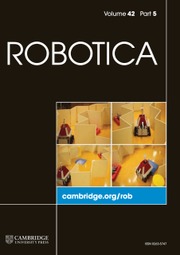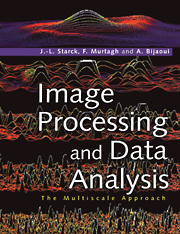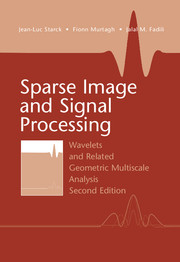Sparse Image and Signal Processing
This book presents the state of the art in sparse and multiscale image and signal processing, covering linear multiscale transforms, such as wavelet, ridgelet, or curvelet transforms, and non-linear multiscale transforms based on the median and mathematical morphology operators. Recent concepts of sparsity and morphological diversity are described and exploited for various problems such as denoising, inverse problem regularization, sparse signal decomposition, blind source separation, and compressed sensing. This book weds theory and practice in examining applications in areas such as astronomy, biology, physics, digital media, and forensics. A final chapter explores a paradigm shift in signal processing, showing that previous limits to information sampling and extraction can be overcome in very significant ways. Matlab and IDL code accompany these methods and applications to reproduce the experiments and illustrate the reasoning and methodology of the research are available for download at the associated web site.
- Cutting-edge applications are discussed in terms of the algorithms needed, for example, in painting to reconstruct large areas of missing data in images
- Nearly everything covered in the book can be redone by the reader, using software code from the book's associated web site, www.SparseSignalRecipes.info
- Multiresolution and multiscale transforms in image and signal processing need a book like this, providing a central and very accessible source of reference
Reviews & endorsements
'This book is well organized, and it covers the theory and application of multiscale imaging and image processing. The authors provide Matlab algorithms for wavelet, ridgelet and curvelet transformations, as well as numerical experiments with detailed Matlab and IDL code for each chapter. A detailed list of the references provides further exploration of recent publications in the area. The book's contents are well prepared for graduate-level students or advanced undergraduates who work in the field of image and signal processing or computer science. The book is also an indispensable resource for professionals looking to adopt innovative concepts for improving the performance of image processing.' Yan Gao, Optics and Photonics News
'This is an excellent book devoted to an important domain of contemporary science, where the activity includes the following stages: research, theory and publication and the verification of results by the scientific community.' D. Stanomir, Mathematical Reviews
'… effective in delivering a concise overview of the field. The book can be highly useful for researchers and graduate students in engineering and science who are looking for research ideas or are interested in applying the techniques to their application domains … a welcome addition to the image processing library.' T. Kubota, Computing Reviews
Product details
May 2010Adobe eBook Reader
9780511731280
0 pages
0kg
137 b/w illus. 6 tables
This ISBN is for an eBook version which is distributed on our behalf by a third party.
Table of Contents
- 1. Introduction to the world of sparsity
- 2. The wavelet transform
- 3. Redundant wavelet transform
- 4. Nonlinear multiscale transforms
- 5. The ridgelet and curvelet transforms
- 6. Sparsity and noise removal
- 7. Linear inverse problems
- 8. Morphological diversity
- 9. Sparse blind source separation
- 10. Multiscale geometric analysis on the sphere
- 11. Compressed sensing.

